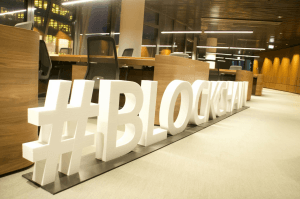Lithuania’s rise in fintech and blockchain; play to win!
Disclaimer: The text below is a press release that was not written by Cryptonews.com.
_____________________________________________________________________________

Just a little bit more than two years ago Lithuania announced its ambition of becoming a regional fintech centre. A year ago, Blockchain Centre Vilnius was born. Words fintech and blockchain were the buzz words then, however, those words are today firmly glued to name ‘Lithuania’. How come this Baltic nation managed to keep this flame burning to become European fintech and blockchain phenomena?
The term was a buzz word during the Davos Economic Forum, the world media toyed with this term, predicting revolutionary changes that blockchain technology will bring to every aspect of our lives. There were many predictions, many questions asked, but very few answers were available. A few entrepreneurial Lithuanians decided that blockchain technology could potentially add to Lithuania’s strive of becoming a regional fintech centre. In close coordination with Blockchain Centre Melbourne and Blockchain Centre Shanghai, it was decided that Vilnius must be their European centre. The Blockchain Centre Vilnius was born.
Many guests gathered a year ago to the opening of the Blockchain Centre Vilnius, wandering what is blockchain and what the centre is going to do. In a way an answer lies in its location in the capital of Lithuania. It is situated in a brand new riverfront office, facing the Parliament building and the Government building. Institutions that make Lithuania attractive to the fintech startups like the Ministry of the Finance, the Ministry of Economy and Innovation and The Bank of Lithuania, are just a dozen minutes away on foot. And the Blockchain Centre, in addition, brings the blockchain dimension to this success story. This is a great example of seeing an eye to eye. A private, not for profit enterprise carries not only a flag of blockchain, but also of fintech.
Just a few weeks ago, the Invest Lithuania agency, which is situated in the same office block as Blockchain Centre, came up with a reviling information. It was announced that Lithuania was only second to the UK in terms of attracting fintech startups in the European Union in 2018. If Brexit will take place, Lithuania has a chance of becoming a leader in the EU in attracting fintech startups in 2019. As the Minister of Finance Vilius Šapoka said, after Lithuania managed to drastically improve its regulation many companies have chosen to invest here. He continued: ‘the work which was done by the Blockchain Centre indicates that Lithuania is moving toward a right direction.’ The ministe added that it is crucial to work together to spread the news that Lithuania is among one of the most innovative countries in the world.

And this word has been spread around the world. The Centre receives visitors from abroad weekly. It has become almost a rule that guests who come to Lithuania as to a fintech country, come to visit the Blockchain Centre and speak about Lithuania as a blockchain country. International media, who come to Lithuania as a fintech country almost always passes the office of the Blockchain Centre on the river. In almost every publication about Lithuania’s fintech success story the Blockchain Centre is mentioned. Eglė Nemeikštytė, CEO and the face of Blockchain Centre is very proud of this achievement. ‘When we opened a year ago we have had an ambition to raise a flag of Vilnius as a European capital of blockchain and send the message to the world that Lithuania is a country where innovative technologies are more than welcome.’
The Centre’s expert knowledge is also appreciated in the international fintech and blockchain forums. It is difficult to pin Eglė in Vilnius, since she is constantly on the move: South Korea, the USA, Norway, and Poland just to mention a few for the last few months. And yes, Brussels, not only because the founder of the Centre Antanas Guoga is a Member of the European Parliament. The Centre has built a reputation in Brussels and in the corridors of the EU power in the whole as a centre of excellence of blockchain. It is not surprising that the European Commission has asked the Centre to be among founding partners of an International Trusted Blockchain Association.
As Mariya Gabriel, the Commissioner for Digital Economy and Society mentioned during her opening speech at the first meeting of the stakeholders in November 2018, the EU missed out with the internet, but won’t miss out this time on blockchain. The Commissioner is convinced that the EU can be a leader in setting global standards, therefore the Member States and stakeholders should work closely. The Blockchain Centre is bringing its expertise to the table where high representatives of such companies like Bosch, Deutsche Bhan, Shell, Ripple, MAERSK, Airbus, Philips, Schneider Electric, Fujitsu and others are sitting. The Blockchain Centre is among those who is taking part in shaping a European blockchain future.
Many people will gather to celebrate Blockchain Centre Vilnius anniversary at the Centre’s office on January 23. The same place, the same time as in the last year. The guests will not have to ask about Blockchain Centre this time because the Centre through its deeds has managed to put a bright entry into Lithuania’s fintech and blockchain success story. The Centre has some new plans; Artificial Intelligence, the internet of things, education, etc. Its achievements during the first year shows that everything is possible. ‘Play to win’ stickers on the staff computer says. It seems this is what they do.
Disclaimer: The text above is an advertorial article that is not part of Cryptonews.com editorial content.


